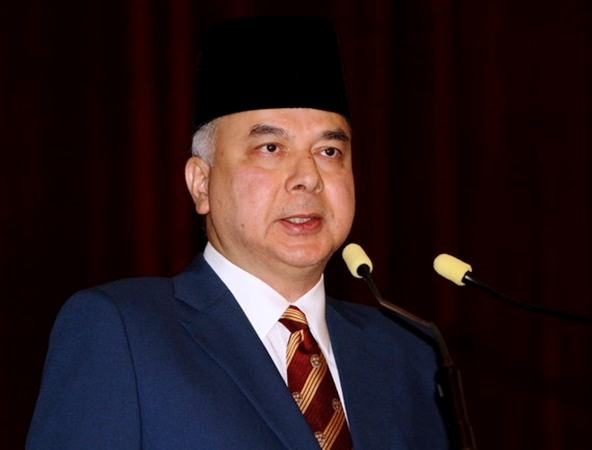Don't neglect human elements in healthcare sector - Sultan Nazrin Shah
KUALA LUMPUR, Sept 24 (Bernama) -- The Sultan of Perak, Sultan Nazrin Shah, said today the human elements of healthcare should not be neglected despite the need to invest in artificial intelligence (AI), in devices, and in other cutting-edge technologies that are transforming the medical sector.
He said while technological advances could contribute substantially to strengthening the technical capabilities of medics, greatly enhancing what hands and heads were capable of, the emotional aspects of healthcare that lie at its heart could not be so easily replicated by machines.
"And so while we must invest in AI, in devices, and in the other cutting-edge technologies that are transforming the sector, at the same time, we must not neglect the human elements of healthcare, and must continually strive to build our capacities in this area as well," he said in his keynote address at the 35th Conference of the International Society for Quality and Safety in Healthcare (ISQua), here.
The conference with the theme ‘Heads, Hearts and Hands - Weaving the Fabric of Quality and Safety’ is held at the Kuala Lumpur Convention Centre.
His Royal Highness said that the relationship between health provider and patient, and the way in which treatment was dispensed, were now recognised as key factors in shaping health outcomes.
The experiences and needs of patients themselves are increasingly being put at the heart of the entire process, with more effective communication widely seen as one of the most important aspects, he said.
"This is contributing to the development of a very different approach to healthcare than the traditional, paternalistic model of the past, and one that views treatment as a partnership between patient and healthcare provider, in which self-management also plays an important role," he said.
The Sultan of Perak said this was necessary both from an ethical point of view, and because it contributes to better outcomes.
"More and more studies are demonstrating the enhanced outcomes that result from increased attention to emotional aspects of health," he said.
Sultan Nazrin Shah said technological advance is itself a central element of the growing understanding of the mental and emotional aspects of health, and some of the most promising current developments combine both high and low-tech aspects to great effect.
"But this trend towards the humanisation of healthcare goes beyond technological advance. Better outcomes are achieved through the very non-technical means of more active engagement by patients, and more effective communication between patients and healthcare providers.
"As described by one writer, ‘even as doctoring appears to be dominated by technology, the human, affective relationship is at the very centre of responsible practice'," he said.
He said this growing recognition of the central role played by these aspects serves to underline the continued importance of healthcare professionals.
It suggested that alongside the precision measurement of symptoms and fine-tuning of responses that AI and devices would deliver, in the fast-approaching future there would still be a role for so-called ‘human medics’ to deliver this all-important human touch, said Sultan Nazrin Shah.
-- BERNAMA
HealthEdge
EXCLUSIVE

Pet Vaccination, Public Awareness And Surveillance Key Towards Rabies-free Southeast Asia - Experts
KUCHING, Dec 11 (Bernama) -- The goal of making Southeast Asia free from human rabies can be achieved through a total understanding of the disease, how it can be prevented and responsible pet ownership among communities, say experts.
read more ››IN FOCUS

TAVI KAEDAH BAIK PULIH INJAP JANTUNG TANPA PEMBEDAHAN




